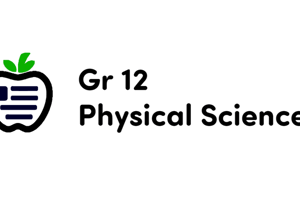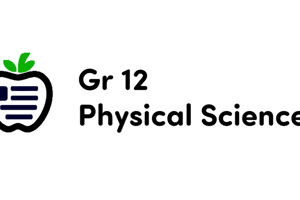Podcast
Questions and Answers
¿Qué teoría revolucionó nuestra comprensión de la gravedad, mostrando que los objetos masivos causan curvas en el espacio-tiempo?
¿Qué teoría revolucionó nuestra comprensión de la gravedad, mostrando que los objetos masivos causan curvas en el espacio-tiempo?
- Teoría de la relatividad especial
- Teoría de la gravedad cuántica
- Teoría de la relatividad general de Albert Einstein (correct)
- Teoría cuántica
¿Qué fenómeno describe la mecánica orbital?
¿Qué fenómeno describe la mecánica orbital?
- El movimiento de satélites en líneas rectas alrededor de la Tierra.
- El movimiento de masas siguiendo curvas en el espacio-tiempo. (correct)
- El estudio de fluidos en reposo.
- El movimiento de planetas siguiendo trayectorias rectas.
¿Qué estudio se ocupa del flujo de fluidos y fenómenos asociados como presión y turbulencia?
¿Qué estudio se ocupa del flujo de fluidos y fenómenos asociados como presión y turbulencia?
- Electromagnetismo
- Dinámica de fluidos (correct)
- Mecánica ondulatoria
- Mecánica cuántica
¿Qué rama de la física aplica la mecánica cuántica a entidades con naturaleza de onda-parte, como fotones y electrones?
¿Qué rama de la física aplica la mecánica cuántica a entidades con naturaleza de onda-parte, como fotones y electrones?
¿Qué tipo de interacción conduce al desarrollo de circuitos eléctricos, motores y generadores?
¿Qué tipo de interacción conduce al desarrollo de circuitos eléctricos, motores y generadores?
¿Quién formuló las tres leyes fundamentales de la mecánica newtoniana?
¿Quién formuló las tres leyes fundamentales de la mecánica newtoniana?
¿Cuál de las siguientes afirmaciones describe con precisión la Ley de Inercia en la mecánica?
¿Cuál de las siguientes afirmaciones describe con precisión la Ley de Inercia en la mecánica?
¿Qué aspecto importante de la mecánica trata de la fuerza de atracción entre masas?
¿Qué aspecto importante de la mecánica trata de la fuerza de atracción entre masas?
¿Qué establece la Ley de Aceleración en la mecánica newtoniana?
¿Qué establece la Ley de Aceleración en la mecánica newtoniana?
¿Qué papel desempeña la acción y reacción en la mecánica newtoniana?
¿Qué papel desempeña la acción y reacción en la mecánica newtoniana?
Flashcards are hidden until you start studying
Study Notes
Mechanics in Physics
Mechanics is a branch of classical physics that deals with the behavior of physical bodies when subjected to forces. It encompasses the study of motion, forces, energy, power, and mechanical properties of materials. In essence, it is concerned with understanding how objects interact with each other and with external forces, and predicting their behavior under different conditions.
Newtonian Mechanics
Newtonian mechanics, named after Isaac Newton, describes the relationship between bodies and the forces exerted upon them. Central to this theory are three laws:
- Law of Inertia: Every object persists in its state of rest or uniform motion unless acted on by an unbalanced net force.
- Law of Acceleration: The acceleration of an object is directly proportional to the net force exerted on it and inversely proportional to its mass.
- Action and Reaction: For every action, there is an equal and opposite reaction; in other words, if an object exerts a force on another object, it itself experiences an equal and opposite force.
These three laws form the foundation for understanding motion, velocity, and acceleration. They are widely used in daily life, ranging from simple tasks like throwing a ball to complex systems like airplanes and rockets.
Gravity and Orbits
Gravitation, another significant aspect of mechanics, deals with the force of attraction between masses. Albert Einstein's General Relativity revolutionized our understanding of gravity, showing that massive objects cause curves in space-time that cause other masses to follow curved paths called geodesics. This leads to the phenomenon known as orbital mechanics, which describes the motion of planets, moons, satellites, and artificial Earth satellites.
Advanced Topics
Beyond simple mechanics, more advanced subjects include:
- Fluid Dynamics: The study of fluid flow and associated phenomena, including pressure, viscosity, and turbulence.
- Wave Mechanics: The application of quantum mechanics to wave-like particle entities, such as photons, electrons, and neutrons.
- Electromagnetism: The interaction between electric charges and magnetic forces, leading to the development of electrical circuits, motors, generators, transformers, and wireless communication.
- Relativistic Mechanics: The extension of Newtonian mechanics to high speeds and strong gravitational fields, incorporating special relativity and general relativity.
In conclusion, mechanics is a broad field with numerous applications across various domains of human endeavor. From understanding everyday actions to designing advanced technological systems, mechanics provides the framework to describe and manipulate the world around us.
Studying That Suits You
Use AI to generate personalized quizzes and flashcards to suit your learning preferences.




